第183章 CHAPTER XXVI(8)
minute comparison of those two great humourists would perhaps show as many points of contrast as of similarity, but there is a strong superficial resemblance between them. They both possessed an inexhaustible supply of broad humour and an imagination of singular vividness. Both had the power of seeing the ridiculous side of common things, and the talent of producing caricatures that had a wonderful semblance of reality. A little calm reflection would suffice to show that the characters presented are for the most part psychological impossibilities; but on first making their acquaintance we are so struck with one or two life-like characteristics and various little details dexterously introduced, and at the same time we are so carried away by the overflowing fun of the narrative, that we have neither time nor inclination to use our critical faculties. In a very short time Gogol's fame spread throughout the length and breadth of the Empire, and many of his characters became as familiar to his countrymen as Sam Weller and Mrs. Gamp were to Englishmen. His descriptions were so graphic--so like the world which everybody knew! The characters seemed to be old acquaintances hit off to the life; and readers revelled in that peculiar pleasure which most of us derive from seeing our friends successfully mimicked. Even the Iron Tsar could not resist the fun and humour of "The Inspector" (Revizor), and not only laughed heartily, but also protected the author against the tyranny of the literary censors, who considered that the piece was not written in a sufficiently "well-intentioned" tone. In a word, the reading public laughed as it had never laughed before, and this wholesome genuine merriment did much to destroy the morbid appetite for Byronic heroes and Romantic affectation.
The Romantic Muse did not at once abdicate, but with the spread of Gogol's popularity her reign was practically at an end. In vain some of the conservative critics decried the new favourite as talentless, prosaic, and vulgar. The public were not to be robbed of their amusement for the sake of any abstract aesthetic considerations; and young authors, taking Gogol for their model, chose their subjects from real life, and endeavoured to delineate with minute truthfulness.
This new intellectual movement was at first purely literary, and affected merely the manner of writing novels, tales, and poems.
The critics who had previously demanded beauty of form and elegance of expression now demanded accuracy of description, condemned the aspirations towards so-called high art, and praised loudly those who produced the best literary photographs. But authors and critics did not long remain on this purely aesthetic standpoint.